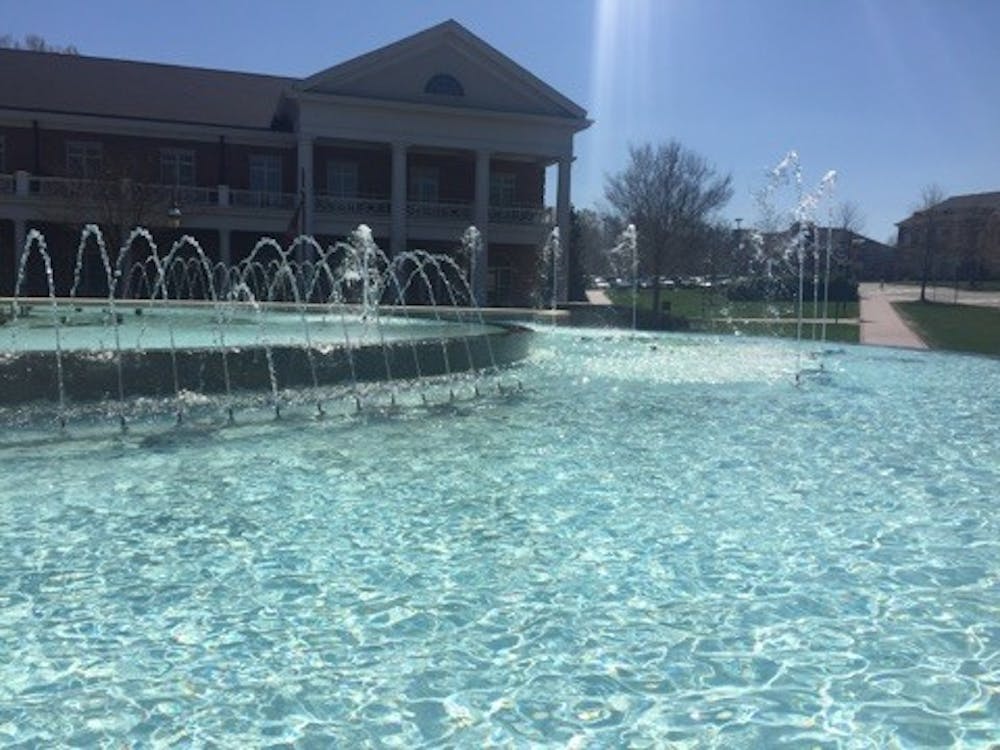Ahmed Fadaam, Elon University assistant professor of communications, has had direct experience with water scarcity. Before moving to the United States, he lived in Baghdad, Iraq. Despite having two major rivers, the Tigris and the Euphrates, Iraq experiences significant water shortages.
Some people even went two or three days without water because of the inability to pump, according to Fadaam. After seeing Americans’ wasteful water habits, he gained a deeper appreciation for the privileges of accessing water.
“When I came here to the United States and I saw how people misuse water [by taking] long showers, watering their gardens, just wasting this precious resource that they have in hand, I felt really sad,” Fadaam said. “Even though [my family and I are] living in the United States right now and we have an abundance of water, we still follow the same habits that we used to have in Baghdad because we know how precious water is for peoples' lives.”
Some of those water-conserving habits Fadaam water-conserving habits include taking short showers, doing laundry less than three times a week, closing the tap when brushing his teeth, washing his face and cooking only enough for the day. Fadaam said continuing these habits allows him to use less than 20 gallons of water a day.
Freshman Ana Garcia encountered water shortage shortly before coming to Elon.
water shortage shortly before coming to Elon.
“When I came here it was a dry season in Puerto Rico so there was a drought and I could only shower for like five days,” Garcia said. “I had friends that lived farther away from the city and they could only shower for three days a week.”
While Puerto Rico has a lot of water resources, Garcia said many of them are polluted by pharmaceutical use. She added that both water and electricity usage are expensive in Puerto Rico because of monopoly control. Since being at Elon, she’s recognized the difference between the two countries’ habits and the importance of conservation.
“It was just really interesting coming here when that dry season was happening [in Puerto Rico] and seeing people take 30-minute showers [at Elon]," Garcia said. "I feel like a lot of people here don’t know what it’s like to not have water.”
Though there may be cultural differences in how water is values, Associate Director of Physical Plant Tom Flood said Elon has been making efforts to promote conservation. Flood said the university began irrigating with reclaimed storm water in the 1980s.
“Initially, this system only served a portion of the campus’s irrigation needs," Flood said. "It gradually expanded over the years."
According to Flood, today's irrigation system has a central control system with flow meters and is connected to an on-campus weather station. These features help minimize waste by irrigating only when needed.
Jessica Bilecki,  education and outreach Coordinator for Elon's Office of Sustainability, said that fountains on campus are also set to conserve water.
education and outreach Coordinator for Elon's Office of Sustainability, said that fountains on campus are also set to conserve water.
“The fountains recirculate water and are only refilled a few times a year so fresh water is not constantly added,” Bilecki said. “Additionally, the height of fountain spray is tied to wind conditions so when it is very windy, the fountains do not spray as high which helps minimize water loss.”
While the university is making an effort to conserve water by employing water-saving methods, the issue of water scarcity and depletion is larger than any one group can take on by itself. Ultimately, much responsibility comes down to an individual level. Because of Fadaam’s experience with water scarcity, he has made it a point to address the issue as part of his COR 110: "The Global Experience" class.
“People think only about oil when it comes to resources, but nobody is thinking about water and how it’s running out fast and how damaging for life this is going to be in the next two or three decades,” Fadaam said. “I think that students should start educating people about how to manage their use of water and be prepared for the day when there will be, God forbid, only limited amounts of water.”


